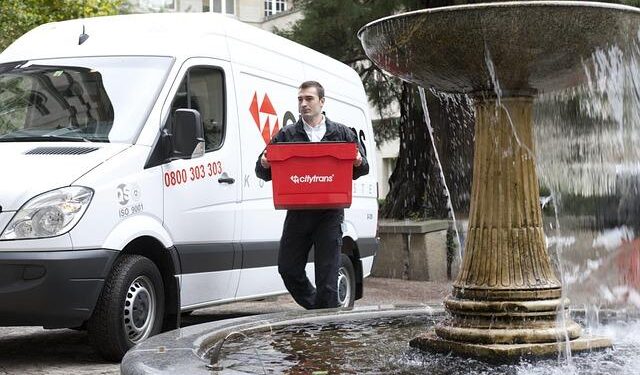Table of Contents
I’ll never forget the look on my client Maria’s face.
We were sitting in my office, a stack of papers between us, and the reality of the situation was crashing down on her.
Her father, a meticulous man who prided himself on his self-reliance, had passed away a few months earlier.
He had done what he thought was the responsible thing: he used a free online template to create his last will and testament, carefully outlining his wish to leave the family home, free and clear, to be shared among Maria and her two siblings.
But a single, seemingly harmless sentence buried in that generic template—”I direct my executor to sell my home and distribute the proceeds”—had become a legal time bomb.
In Florida, that specific instruction unknowingly stripped the property of its sacred homestead creditor protection.1
When her father died with unexpected, late-in-life medical debt, that bomb detonated.
The house, the bedrock of their family memories, had to be sold to pay creditors.
The children he had tried so hard to protect were left with nothing from the home he had worked his entire life to own.
His intent was clear, but the reality created by a “free” document was a nightmare.2
That day was a turning point for me.
I realized that helping people with their final wishes wasn’t about cleaning up messes after the fact; it was about preventing them.
It led me to a core belief I now share with every client: A will is a treasure map you leave for your loved ones. A good map doesn’t just put an “X” on the treasure; it clearly marks the dangers, the quicksand, and the specific terrain of the journey.
A generic, free map from the internet is like a child’s crayon drawing.
It might show a destination, but it completely ignores the real-world minefields of state-specific law.
This guide is my attempt to give you a proper, safe map.
We will walk through how to create a legally sound, simple Florida will for free.
We’ll explore the legitimate no-cost options, but more importantly, I will teach you how to read the legal terrain of Florida so you can avoid the traps that turn a final act of love into a legacy of heartache.
Part 1: The Default Map: What Happens When the State Draws Your Lines
Before you can draw your own map, you must understand the one the state will draw for you if you don’t.
Dying without a will is called dying “intestate”.3
It’s a common misconception that if you die intestate, your property automatically goes to the state of Florida.
That only happens in the very rare case that you have absolutely no living relatives, no matter how distant.4
The real problem with intestacy is that you lose all control.
Your final wishes become irrelevant.
Instead, a rigid, one-size-fits-all formula codified in Florida law dictates who gets your property, who manages your estate, and who cares for your children.6
This process, governed by Florida Statutes Chapter 732, Part I, makes no exceptions for need, the closeness of your relationships, or what you might have promised someone.8
This loss of control triggers a predictable and often painful cascade of consequences.
When a person dies without a will, their probate assets (those owned in their individual name) are declared “intestate”.10
The probate court must then strictly follow Florida’s intestacy laws to distribute those assets.
This can lead to devastatingly unintended outcomes, especially for blended families.
For example, if you are married and have children from a previous relationship, your spouse does not inherit everything.
They receive only half of your estate, while your children from the prior relationship inherit the other half, potentially forcing the sale of a family home or business.4
Furthermore, the court will appoint a personal representative (executor) to manage your estate, and this person could be a stranger to you and your family.3
The entire process is typically more complex, more expensive, and more time-consuming than a standard probate guided by a valid will, often fueling family disputes during an already difficult time.5
The table below shows Florida’s default map.
Find your situation to see the stark, legally mandated outcome if you do nothing.
Table: Florida’s Intestacy Blueprint
| If You Are… (Your Situation) | And You Die Without a Will in Florida… (Who Inherits Your Probate Estate) | Governing Law (Florida Statute) |
| Married with no descendants | Your spouse inherits 100% of your property. | § 732.102 |
| Married with descendants you share with your spouse (and your spouse has no other descendants) | Your spouse inherits 100% of your property. | § 732.102 |
| Married with descendants you share with your spouse (but your spouse also has descendants from another relationship) | Your spouse inherits 50%; your descendants share the other 50%. | § 732.102 |
| Married with descendants who are not your spouse’s descendants (e.g., from a prior relationship) | Your spouse inherits 50%; your descendants share the other 50%. | § 732.102 |
| Unmarried with descendants | Your descendants inherit 100% of your property. | § 732.103 |
| Unmarried, no descendants, but your parents are alive | Your parents inherit 100% of your property. | § 732.103 |
| Unmarried, no descendants or parents, but your siblings are alive | Your siblings inherit 100% of your property. | § 732.103 |
Sources: 4
These cold facts have a human cost.
Imagine a man who, after his first wife passed away, remarried and lived happily for 20 years with his second wife in a home they shared.
He always intended for her to have the house if he died first.
But he never made a will.
When he passed, his adult children from his first marriage legally inherited 50% of the home.
They had a different vision for their inheritance and could, and did, force its sale, leaving their stepmother without the home she had shared with their father for two decades.
This wasn’t his wish, but it was the destination dictated by the state’s default map.
Part 2: The Allure of Free Maps: Navigating the Perils of DIY Wills
In a world where we can manage our banking, book travel, and buy almost anything online, the impulse to create a will with a few clicks is understandable.
Services like FreeWill, LegalZoom, and Nolo’s Quicken WillMaker offer convenience and a low or non-existent price tag, which is an attractive proposition.13
The problem is that these tools often provide a map that is dangerously incomplete.
The central flaw of these generic templates is that they are “one-size-fits-none” in a state that is full of legal exceptions.16
Florida law is a unique landscape, filled with peculiarities that national, form-based services are simply not designed to navigate.
A user can follow a template’s instructions perfectly and still create a document that is either invalid or, like with Maria’s father, creates a catastrophe.18
Florida’s Legal Minefields: The Hidden Dangers on the Map
The most critical failures of DIY wills are not random typos; they are systematic blind spots to Florida-specific statutes.
Minefield #1: The Homestead Trap
Florida’s Constitution provides powerful “homestead” protection for your primary residence, shielding it from forced sale by most creditors.1
It’s one of the most valuable assets you can pass on.
However, a DIY will can unwittingly destroy this protection in two key ways:
- Improper Devise: If you have a spouse or a minor child, Florida law severely restricts your ability to leave your homestead to anyone else in your will. For instance, leaving your homestead to your adult child when you have a surviving spouse is an invalid devise. The will’s instruction fails, and the property passes according to the rigid intestacy rules we just discussed, not your wishes.2
- Directing a Sale: This was the fatal error in my client Maria’s story. When a will directs the personal representative to sell the homestead and distribute the cash proceeds, the property loses its homestead status and its protection from creditors. This is settled law, confirmed in cases like Knadle v. Estate of Knadle, meaning the proceeds from the sale become available to pay off the estate’s debts before your heirs see a dime.2 A generic template won’t warn you about this subtle but catastrophic distinction.
Minefield #2: The Unqualified Personal Representative (Executor)
Your personal representative is the person you trust to carry out your will’s instructions.
But Florida has a strict rule: your personal representative must either be a Florida resident OR a close relative (like a spouse, sibling, parent, or child).1
An online form will happily let you name your most trusted and capable friend who lives in New York.
However, a Florida court will reject that appointment.
This forces delays, incurs extra legal fees, and ultimately results in the court appointing someone else to manage your estate—someone who may not know you or your family at all.2
Minefield #3: The Witnessing Wobble & The Execution Ceremony
This is the most common way for a will to be invalidated entirely.
Florida law is exacting about the “signing ceremony.” According to Florida Statute § 732.502, a will must be: in writing, signed by the testator (you) at the end, and signed by two witnesses in the presence of the testator and in the presence of each other.21
Every part of that sentence is critical.
A real-world case, Bitetzakis v.
Bitetzakis, provides a heartbreaking example.
A husband was in the process of signing his will in front of two friends who were acting as witnesses.
He had signed his first name when his wife, believing incorrectly that the will needed to be notarized, told him to stop.
He never finished signing his name on the will itself.
The next day, he signed a separate affidavit in front of a notary, but not the will.
The court ultimately declared the will invalid because he never completed his signature on the actual will document in the presence of the witnesses.23
This shows how even the best intentions can be derailed by misunderstanding the precise legal ritual required.
Minefield #4: The “Validity vs. Smoothness” Trap
This is a classic false economy encouraged by “free” services.
A will is legally valid in Florida with just the signatures of the testator and two witnesses.
Notarization is not required for validity.23
However, without a notarized document called a “self-proving affidavit,” the will must be “proved” in court after your death.
This can involve the costly and time-consuming process of locating the original witnesses—who may have moved or passed away years later—and having them testify to the will’s authenticity.25
A self-proving affidavit, which does require a notary, allows the will to be admitted to probate without any witness testimony, saving your estate significant time and money.25
Many free templates either omit this crucial step or explain it poorly, leading people to skip the “optional” notary to save a few dollars now, only to cost their family thousands later.
Table: Comparing “Free” Will Creation Methods
| Method | True Cost | Protection from FL Errors | Best For… |
| DIY Template (e.g., PDF download) | $0 upfront, but potentially thousands in future legal fees and lost assets. | None. You are navigating the minefields completely blind. | Not recommended due to the extremely high risk of critical, legacy-destroying errors. |
| Online Will Service (e.g., FreeWill) | $0 for a basic will, but often includes upsells for other documents. | Minimal to none. These services cannot provide legal advice and are not designed to guard against Florida’s unique traps like the homestead rules. | Extremely simple, uncontested estates where the user is fully aware of the significant risks involved.14 |
| Pro Bono / Legal Aid | $0 for those who qualify based on income, age, or veteran status. | High. A licensed Florida attorney drafts the will, ensuring full compliance with state law and protecting against common pitfalls. | Low-income Floridians, seniors, or veterans. This is the safest and most effective no-cost option.28 |
Part 3: The True North: A Step-by-Step Guide to Drawing Your Valid Florida Will
This is the heart of our journey: creating your own safe and effective treasure map.
This is not just about filling in a form; it’s a process of informed decision-making followed by meticulous execution.
Step 1: Assembling Your Expedition Team (Key Roles)
- The Testator: That’s you, the mapmaker. In Florida, you must be at least 18 years old (or an emancipated minor) and of “sound mind” when you create the will.3
- The Personal Representative: This is your chosen executor. Remember the Florida rule: they must be a resident or a close relative. Crucially, always name an alternate in case your first choice is unable or unwilling to serve.1
- The Beneficiaries: These are the people or organizations who will receive your “treasure.” Use their full, legal names to avoid any ambiguity.
- The Guardian for Minor Children: If you have children under 18, this is arguably the most important decision you will make in your will. You must name a guardian to care for them. Again, always name an alternate.3
Step 2: Charting Your Assets (Probate vs. Non-Probate)
This is a critical concept that many people miss: your will does not control everything you own. Many assets pass to your heirs automatically, outside of the will and the probate process.6
These “non-probate” assets include things like life insurance policies, retirement accounts (e.g., 401(k)s, IRAs), and bank or brokerage accounts with “Payable on Death” (POD) or “Transfer on Death” (TOD) designations.5
These assets go directly to the person you named on the beneficiary form for that specific account, regardless of what your will says.
This can lead to disaster.
If your will leaves everything to your current spouse, but your old 401(k) from a previous job still lists your ex-spouse as the beneficiary, your ex-spouse gets the 401(k).16
Your will is powerless to change that.
A complete map requires both a valid will for your probate assets and a thorough audit of all your non-probate beneficiary designations.
Your Action Item: Make a list of all your significant assets.
For each one, determine if it’s a “probate asset” (like a house or car titled only in your name) or a “non-probate asset.” For all non-probate assets, find the beneficiary designation form and make sure it reflects your current wishes.
Step 3: Drafting the Document (The Core Clauses)
Below is simple, sample language for a very basic will.
This is for educational purposes to help you understand the structure.
- Opening Statement: “I,, a resident of, Florida, declare this to be my Last Will and Testament.”
- Revocation Clause: “I hereby revoke all prior wills and codicils.”
- Personal Representative: “I appoint, of, as the Personal Representative of my estate. If they are unable or unwilling to serve, I appoint, of, as the alternate Personal Representative.”
- Guardian for Minors: “If I am the last surviving parent of my minor children, I appoint [Name of Primary Guardian], of, as the Guardian of their person and property. If they are unable or unwilling to serve, I appoint [Name of Alternate Guardian], of, as the alternate Guardian.”
- Specific Bequests (Gifts): “I give my antique watch to my nephew, [Nephew’s Full Name].” Warning: When giving cash, it is far safer to use percentages rather than fixed dollar amounts. An estate can shrink due to unexpected expenses. A gift of “10% of my estate” ensures the gift is proportional to what is actually available, whereas a gift of “$50,000” might wipe out the remainder intended for your primary heirs.1
- Residuary Clause: This is the most important distribution clause. “I give all the rest, residue, and remainder of my estate to. If they do not survive me, I give all the rest, residue, and remainder of my estate to.” This clause acts as a safety net, ensuring all your property is distributed.32
Step 4: The Signing Ceremony (The Most Important 15 Minutes)
To avoid the witnessing errors that invalidate so many wills, you must treat this step like a formal ceremony.
Follow this script precisely.
- Assemble the Parties: Gather yourself (the testator) and at least two witnesses in the same room. The witnesses must be “disinterested,” meaning they do not inherit anything in your will. They should also be competent adults.30
- The Declaration: You, the testator, must clearly state to the witnesses: “This is my Last Will and Testament. I am signing it willingly, and I request that you act as my witnesses.”
- Testator’s Signature: You sign the will at the very end of the document, while both witnesses watch you do it.21
- Witnesses’ Signatures: The first witness then signs their name and address, while you and the second witness watch. Then, the second witness signs their name and address, while you and the first witness watch.21
- Stay Together: Everyone must remain in the same room, in the presence of each other, until all three signatures are complete. No one should step out to take a phone call or use the restroom during this process.30
Step 5: Making it “Self-Proving” (The Notary’s Vital Role)
As discussed, this step isn’t required for validity, but it is essential for a smooth probate process.
After the will is signed and witnessed, you, your two witnesses, and a notary public should execute a self-proving affidavit.
The language is specified in Florida Statute § 732.503.27
A common point of confusion is whether the notary can also be a witness.
While some old case law has created ambiguity 24, the Florida Department of State and best legal practices are clear: the notary should be a separate person.
A notary cannot notarize their own signature as a witness.27
For a clean, challenge-proof will, use three separate, disinterested people: two witnesses and one notary.
Step 6: Securing the Map (Proper Storage)
Your original will is a precious document.
Under Florida law, if the original will cannot be found after your death, there is a legal presumption that you intentionally destroyed it with the intent to revoke it.2
This can be a very difficult presumption for your heirs to overcome.
Do not leave the only original copy in a place where a disinherited or unhappy family member might be tempted to make it “disappear”.1
The best practice is to store the original in a secure, fireproof location outside your home, such as a safe deposit box or with your named personal representative.
Make sure your loved ones know where to find it.
Part 4: The Professional Navigator: When “Free” Isn’t the Right Price
A DIY map is only suitable for the simplest of journeys.
If your situation involves any complexity, attempting to go it alone is reckless.
You need a professional navigator—an experienced estate planning attorney.
Red Flags: When Your Treasure Map is Too Complex for DIY
You absolutely should seek professional legal advice and not use a DIY will if any of the following apply to you:
- You have a large estate that might be subject to estate taxes.
- You own a business.
- You have a child or other beneficiary with special needs (a special needs trust is likely required to protect their eligibility for government benefits).20
- You are in a blended family and want a specific distribution that differs from the state’s default rules.
- You own real estate in another state or country.18
- You want to disinherit a spouse or a child.
- You have reason to believe your will might be contested by family members.
Truly Free Legal Help: Accessing Florida’s Legal Aid Services
For many Floridians, the best “free” option is not a template from the internet, but professional legal service provided at no cost.
The biggest risk of DIY options is legal error.
Pro bono services from Legal Aid societies and other organizations provide the expertise of a licensed Florida attorney, eliminating that risk while still meeting the need for a no-cost solution.29
These services are typically available to those who meet eligibility requirements, which are often based on having a low income, being over a certain age (e.g., 60), or being a veteran.29
You can find help by contacting:
- Your local county’s Legal Aid Society.28
- The Florida Senior Legal Helpline: 888-895-7873.35
- The Florida Veterans Legal Helpline: 866-486-6161.35
- Community Legal Services, which serves many counties in Central Florida.29
Conclusion: Your Legacy, Secured
We began with the story of Maria, whose family learned the hard way that a will is more than just a piece of paper.
It is the final map you leave behind, guiding your loved ones through one of the most difficult times of their lives.
You now have the knowledge not just to find a “free” will, but to craft a safe and effective one.
You understand the state’s default map and its perils.
You can spot the hidden minefields in generic online templates.
And you have a step-by-step guide to drawing your own map with the precision and care required by Florida law.
A will is your final act of care for your family.
By understanding the terrain and following the correct procedures, you ensure the map you leave behind leads them to the security and peace of mind you intended, not to a legal battleground.
Your legacy is far too important for a cheap, generic map.
Works cited
- 5 Mistakes to Avoid When Making a Florida Will – Jurado …, accessed on July 23, 2025, https://yourfloridaprobatelawyer.com/5-mistakes-to-avoid-when-making-a-florida-will/
- Top Five Mistakes in Florida Wills – Statewide Probate, accessed on July 23, 2025, https://www.statewideprobate.com/top-five-mistakes-in-florida-wills/
- Consumer Pamphlet: Do You Have a Will? – The Florida Bar, accessed on July 23, 2025, https://www.floridabar.org/public/consumer/pamphlet011/
- Intestate Succession in Florida – Nolo, accessed on July 23, 2025, https://www.nolo.com/legal-encyclopedia/intestate-succession-florida.html
- What Happens if You Die without a Will in Florida? | Michael Fayard, Family Law Attorney, accessed on July 23, 2025, https://www.941lawhelp.com/blog/what-happens-if-you-die-without-a-will-in-florida/
- What happens if you die without a will in Florida? – DeLoach, Hofstra & Cavonis, P.A., accessed on July 23, 2025, https://www.dhclaw.com/blog/what-happens-if-i-die-without-a-will-.cfm
- What Happens If Someone in Florida Dies Without a Will? – Beller Law, P.L., accessed on July 23, 2025, https://bellerlawoffice.com/blog/what-happens-if-someone-in-florida-dies-without-a-will/
- Laws of Intestacy in Miami – Samole Law Firm, PA, accessed on July 23, 2025, https://www.samolelaw.com/laws-of-intestacy
- 2024 Florida Statutes Title XLII – Estates and Trusts Chapter 732 – Probate Code: Intestate Succession and Wills – Justia Law, accessed on July 23, 2025, https://law.justia.com/codes/florida/title-xlii/chapter-732/
- Intestate Succession in Florida – Information on Probate – Di Pietro Partners, accessed on July 23, 2025, https://ddpalaw.com/blog/probate/florida-intestate-succession/
- Florida Statutes Title XLII. Estates and Trusts § 732.101 – Codes – FindLaw, accessed on July 23, 2025, https://codes.findlaw.com/fl/title-xlii-estates-and-trusts/fl-st-sect-732-101/
- Ramifications of Death Without a Will in Florida, accessed on July 23, 2025, https://www.gierachlaw.com/orlando-probate-lawyer/death-without-a-will/
- Make Your Free Florida Last Will & Testament – FreeWill, accessed on July 23, 2025, https://plan.freewill.com/make-your-free-florida-will
- Best Online Will Makers – Investopedia, accessed on July 23, 2025, https://www.investopedia.com/the-best-online-will-makers-8780841
- 7 Best Online Will Makers of 2025 – NerdWallet, accessed on July 23, 2025, https://www.nerdwallet.com/p/best/investing/estate-planning/online-will-makers
- Common Mistakes in Florida Estate Planning That Lead to Probate: Key Pitfalls to Avoid, accessed on July 23, 2025, https://www.marycontelaw.com/florida-estate-planning-mistakes/
- Pros and Cons of Do-It-Yourself Florida Wills – Beller Law, accessed on July 23, 2025, https://bellerlawoffice.com/blog/pros-and-cons-of-do-it-yourself-florida-wills/
- A Florida Estate Planning Attorney Says No to Online Forms – Comiter Singer, accessed on July 23, 2025, https://www.comitersinger.com/blog/a-palm-beach-county-estate-planning-attorney-explains-why-you-should-not-do-your-estate-planning-online/
- The Risks and Limitations of DIY Wills: The Importance of Professional Guidance in Estate Planning – Rice Law Firm, accessed on July 23, 2025, https://www.ricelawflorida.com/the-risks-and-limitations-of-diy-wills-the-importance-of-professional-guidance-in-estate-planning/
- Online Wills: Why You Shouldn’t Use DIY Will Services, accessed on July 23, 2025, https://www.bestlegacylawyer.com/online-wills/
- The 2024 Florida Statutes (including 2025 Special Session C) – Online Sunshine, accessed on July 23, 2025, http://www.leg.state.fl.us/statutes/index.cfm?App_mode=Display_Statute&URL=0700-0799/0732/Sections/0732.502.html
- Florida Statutes Title XLII. Estates and Trusts § 732.502 – Codes – FindLaw, accessed on July 23, 2025, https://codes.findlaw.com/fl/title-xlii-estates-and-trusts/fl-st-sect-732-502/
- Does A Florida Will Need To Be Notarized?, accessed on July 23, 2025, https://kuhnlegal.com/does-a-florida-will-need-to-be-notarized/
- Can A Notary Also Serve As Witness To A Will? – Pompano Beach Estate & Trust Litigation Lawyer, accessed on July 23, 2025, https://www.estateprobatelitigation.com/can-a-notary-also-serve-as-witness-to-a-will/
- How Notary Problems Could Complicate a Florida Will | DeLoach, Hofstra & Cavonis, P.A., accessed on July 23, 2025, https://www.dhclaw.com/library/how-notary-problems-could-complicate-a-florida-will.cfm
- Florida statute section 733.201(1) – Online Sunshine, accessed on July 23, 2025, http://www.leg.state.fl.us/Statutes/index.cfm?App_mode=Display_Statute&URL=0700-0799/0733/Sections/0733.201.html
- Notarize a will, accessed on July 23, 2025, https://notaries.dos.state.fl.us/education/faq/will.html
- Dade Legal Aid – Put Something Back, accessed on July 23, 2025, https://www.dadelegalaid.org/
- Eligibility for Assistance – Community Legal Services, accessed on July 23, 2025, https://www.legalaccessforall.org/eligibility-for-assistance/
- Requirements for a Last Will and Testament to Be Legally Valid in Florida, accessed on July 23, 2025, https://www.dhclaw.com/library/legal-requirements-for-a-will-to-be-valid-in-florida.cfm
- What Not to Do in Your Florida Will – Dorcey Law Firm, accessed on July 23, 2025, https://www.dorceylaw.com/blog/2024/january/avoiding-common-mistakes-5-things-not-to-do-in-y/
- Creating a Will: 4 Common Mistakes To Avoid-Call: 1-772-218-0480 | Florida Estate Planning Lawyer | Beacon Legacy Law, accessed on July 23, 2025, https://www.palmcitylawyer.com/library/creating-a-will-4-common-mistakes-to-avoid-call-1-772-218-0480.cfm
- Can a Notary Serve as a Witness to a Will or Trust in Florida? – PersanteZuroweste, accessed on July 23, 2025, https://persantelaw.com/florida-notary-witness-will-or-trust/
- Can a notary be a witness to a will in Florida? – PTM Trust and Estate Law, accessed on July 23, 2025, https://ptmlegal.com/blog/can-a-notary-be-a-witness-to-a-will-in-florida
- Florida Legal Aid Programs – FFLA, accessed on July 23, 2025, https://fundingfla.org/florida-legal-aid-programs/
- Need Assistance – The Legal Aid Society of the Orange County Bar Association, Inc., accessed on July 23, 2025, https://www.legalaidocba.org/need-assistance/






